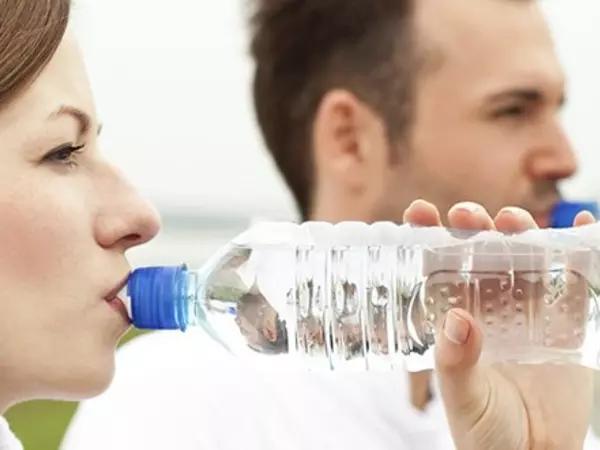Dehydration is a common condition that occurs when the body loses more fluids than it takes in. While the primary symptoms of dehydration, such as thirst, fatigue, and dizziness, are well-known, the potential connection between dehydration and stomach pain is often overlooked. Let’s look into the relationship between fluid imbalance and digestive discomfort, providing insights into the causes, symptoms, and management of this often-overlooked condition.
Understanding dehydration
Dehydration is a state in which the body’s water content falls below the normal level, resulting in an imbalance of fluids and electrolytes. This can occur due to a variety of factors, including excessive sweating, diarrhea, vomiting, or simply not drinking enough water. When the body loses too much water, it struggles to maintain its normal functions, leading to a wide range of symptoms.
The importance of water in the body
Water is essential for the proper functioning of the human body. It plays a crucial role in various processes, including digestion, nutrient absorption, and waste elimination. Water makes up approximately 60% of our body weight and is present in every cell, tissue, and organ. Maintaining a healthy water balance is crucial for overall well-being.
Dehydration levels and symptoms
Dehydration can range from mild to severe. Mild dehydration may cause thirst, headaches, and fatigue, while moderate dehydration can lead to dizziness, dry mouth, and decreased urine production. Severe dehydration on the other hand can be life-threatening, causing symptoms such as rapid heartbeat, confusion, and even organ failure.
The link between dehydration and abdominal pain
Dehydration can have a direct impact on the digestive system, leading to a range of stomach-related issues. Understanding the underlying reason can help give you a better understanding.
Weakened digestion and nutrient absorption
When the body is dehydrated, the digestive system may not function optimally. Water is essential for the proper breakdown and absorption of nutrients, and a lack of it can lead to digestive discomfort, such as bloating, constipation, or diarrhea.
Greater risk of gastrointestinal conditions
Dehydration can also contribute to the development or worsening of certain gastrointestinal conditions. For example, it may increase the risk of developing peptic ulcers, gastroesophageal reflux disease (GERD), and irritable bowel syndrome (IBS).
Electrolyte imbalances and stomach pain
Dehydration can disrupt the balance of electrolytes, such as sodium, potassium, and chloride, which are essential for proper digestive function. Imbalances in these electrolytes can lead to muscle cramps, nausea, and abdominal discomfort.
Increased inflammation and digestive issues
Dehydration can also trigger an inflammatory response in the body, which can contribute to stomach pain and other digestive problems. This is particularly true in individuals with underlying gastrointestinal conditions or sensitivities.
Symptoms of dehydration-related stomach pain
Some common symptoms include:
- Stomach ache or discomfort
- Nausea or vomiting
- Diarrhea
- Constipation
- Bloating or gas
- Loss of appetite
- Heartburn or acid reflux
- Feelings of fullness or discomfort after eating
It’s important to note that the severity and specific symptoms may vary depending on the individual’s level of dehydration and any underlying gastrointestinal conditions.
Possible causes of dehydration-related stomach pain
Several factors can contribute to the development of dehydration-related stomach pain.
Excessive fluid loss
Conditions or activities that lead to excessive fluid loss, such as diarrhea, vomiting, excessive sweating, or prolonged exercise, can increase the risk of dehydration and associated stomach pain.
Inadequate fluid intake
Simply not drinking enough fluids, particularly water or other hydrating fluids can result in dehydration and its accompanying digestive discomfort.
Certain medications
Some medications, such as diuretics, laxatives, and antidepressants, can increase the risk of dehydration and contribute to stomach pain.
Underlying medical conditions
Certain medical conditions, such as diabetes, kidney disorders, or gastrointestinal diseases, can predispose individuals to dehydration and related digestive issues.
Environmental factors
Hot or dry climates, high altitudes, and other environmental factors that increase fluid loss can also lead to dehydration and associated stomach pain.
Diagnosing dehydration-related stomach pain
Diagnosing the underlying cause of stomach pain related to dehydration typically involves a combination of medical history, physical examination, and diagnostic tests.
Medical history and physical examination
Your healthcare provider will likely ask about your symptoms, fluid intake, and any recent changes in your health or lifestyle that may have contributed to the issue. They will also perform a physical examination, checking for signs of dehydration, such as dry mouth, decreased skin elasticity, and low blood pressure.
Laboratory tests
Depending on the severity of the symptoms, your healthcare provider may order laboratory tests to assess your electrolyte levels, kidney function, and overall hydration status. These tests may include blood tests, urine tests, or even imaging studies, such as an abdominal ultrasound or CT scan.
Ruling out other conditions
Your healthcare provider may also need to rule out other potential causes of your stomach pain, such as gastrointestinal infections, food poisoning, or underlying digestive disorders. This may involve additional tests or referrals to specialists.
Treatment of dehydration-related stomach pain
Addressing dehydration-related stomach pain typically involves a multifaceted approach that focuses on restoring fluid balance and addressing any underlying issues.
Rehydration strategies
The main treatment for dehydration-related stomach pain is to replenish the body’s fluid and electrolyte levels. This may involve drinking water, electrolyte-rich beverages, or in severe cases, receiving intravenous (IV) fluids in a healthcare setting.
Dietary modifications
Adjusting your dietary habits can also help alleviate stomach pain associated with dehydration. Consuming foods and drinks that are easy to digest, such as clear broths, bananas, and rice, can help soothe the digestive system.
Medication
In some cases, your healthcare provider may prescribe medications to address specific symptoms, such as anti-nausea medications or antacids to alleviate heartburn or acid reflux.
Lifestyle changes
Adopting healthy lifestyle habits, such as staying hydrated, managing stress, and engaging in regular physical activity can help prevent and manage dehydration-related stomach pain.
Addressing underlying conditions
If an underlying medical condition is contributing to dehydration-related stomach pain, your healthcare provider will work with you to manage that condition and its associated symptoms.
Prevention
Proactive measures can help reduce the risk of developing dehydration-related stomach pain. Here are some tips:
- Stay hydrated by drinking water regularly throughout the day. Keep a water bottle near by
- Increase water intake during periods of increased fluid loss, such as exercise, hot weather, or illness
- Limit consumption of diuretic beverages, such as alcohol and caffeinated drinks
- Maintain a balanced, fiber-rich diet to support healthy digestion
- Manage any underlying medical conditions that may contribute to dehydration
- Seek medical attention if you experience persistent or severe abdominal pain, especially if accompanied by signs of dehydration
Conclusion
Dehydration can have a significant impact on the digestive system, leading to a range of stomach-related issues, including stomach cramps, pain, discomfort, and other gastrointestinal symptoms. By understanding the link between fluid imbalance and digestive health, individuals can take better steps to prevent and manage dehydration-related stomach pain.
Sources
- Dehydration related abdominal pain (DRAP) – PubMed
- Dehydration: Symptoms & Causes – Cleveland Clinic
Medical Disclaimer
NowPatient has taken all reasonable steps to ensure that all material is factually accurate, complete, and current. However, the knowledge and experience of a qualified healthcare professional should always be sought after instead of using the information on this page. Before taking any drug, you should always speak to your doctor or another qualified healthcare provider.
The information provided here about medications is subject to change and is not meant to include all uses, precautions, warnings, directions, drug interactions, allergic reactions, or negative effects. The absence of warnings or other information for a particular medication does not imply that the medication or medication combination is appropriate for all patients or for all possible purposes.








